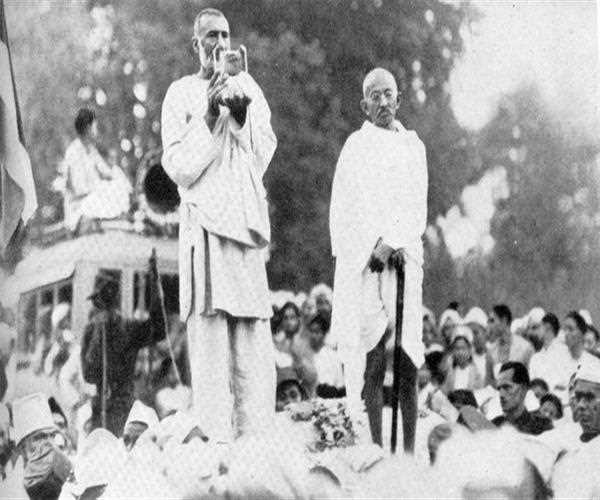
29-Jun-2024 , Updated on 7/15/2024 2:17:06 AM
Why Gandhi Ji favoured Muslims in the history of India?
Mahatma Gandhi is often praised for his role in India's independence and his push for non-violence. However, several lesser-known aspects of his life complicate his legacy. This article explores why Gandhi Ji seemed to favor Muslims in India's history, touching on various incidents and views.
Gandhi made a significant change to the original composition by Pandit Lakshman Acharya Ji, altering it to "Raghupati Raghav Raja Ram" to include "Iswar Allah." This change aimed to promote unity between Hindus and Muslims, highlighting his efforts to foster religious harmony.
During the Noah Khali riots, Manu, Gandhi's young grandchild, who was forced to sleep with him during his controversial celibacy tests, lost his pumice stone. Gandhi's harsh reprimand of her revealed his stern and often controversial methods. This incident, mentioned by Gandhi's grandson, Raj Mohan Gandhi, in his book, reflects his complex personality.
Gandhi's celibacy experiments, where he made young women sleep beside him to test his self-control, led many of his followers to leave in disgust. Despite Sardar Patel calling these experiments a mistake, Gandhi persisted. This controversial aspect of his life often overshadows his efforts to promote unity and non-violence.
When Gandhi's wife, Kasturba, had pneumonia, he refused to let British doctors give her penicillin, a drug that could have saved her, preferring prayers instead. Ironically, Gandhi took quinine when he had malaria. This double standard raises questions about his principles.
Accusations of racism also tarnish Gandhi's legacy. His early writings contain derogatory views about black people and arguments for the superiority of white people. These views starkly contrast his later stance on equality and non-violence.
Gandhi claimed that the devastating 1934 Bihar earthquake, which killed thousands, was God's punishment. This victim-blaming philosophy is another controversial part of his beliefs.
During World War II, Gandhi advised the Britons to resist the Nazis without weapons and let themselves be slaughtered if necessary. He even suggested that Jews should have offered themselves to Hitler's butcher's knife during the Holocaust, believing in passive resistance. These views are widely criticized for their impracticality and insensitivity.
Gandhi's views on the caste system are also contentious. He believed that lower castes should stay in their traditional roles, a stance opposed by many, including B.R. Ambedkar, who accused Gandhi of using deceit to maintain the status quo.
Despite these controversies, Gandhi consistently advocated for Hindu-Muslim unity. He urged Hindus not to hold anger against Muslims, even in the face of violence, believing that non-violence and forgiveness were the keys to a new and peaceful world.
Gandhi's apparent favoring of Muslims in India's history can be seen as part of his broader mission to promote religious harmony and non-violence. However, his legacy is complex, marred by controversial practices and beliefs. Understanding this complexity is crucial to fully grasping Gandhi's impact on Indian history and society.

Student
I am a content writter !
Comments
Join Our Newsletter
Subscribe to our newsletter to receive emails about new views posts, releases and updates.
Copyright 2010 - 2026 MindStick Software Pvt. Ltd. All Rights Reserved Privacy Policy | Terms & Conditions | Cookie Policy